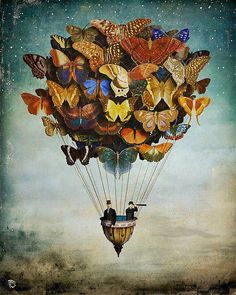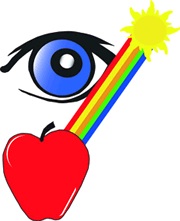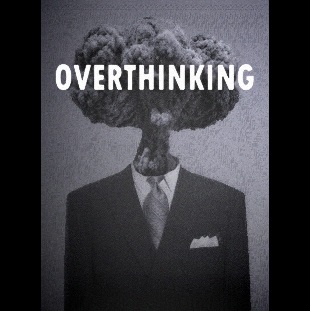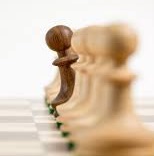
While walking in a park one calm and cool autumn, from out of the enjoyment of a ten minute moment, with trees bathed in fall colours, with birds—black-eyed juncos, chickadees and sparrows—pecking among leaves and squirrels running around like maniacs, from out of the overcast white sky comes a question.
Is it serious?
“It depends,” you say. “What is “it”? Is a mouse serious? A mouse thinks so. That’s why he runs. Owls think mice are serious. Survival is serious to survivors. Owl and mouse do owl and mouse things to survive just as humans do human things to survive (except with TVs, toilets and machines). The difference is, whereas a mouse and owl won’t understand what “serious” is, a human might.
Think of it as a game. (Cue music: Stakka Bo, “Here We Go Again” (1993)).

In the first chapter of Finite and Infinite Games (1986), James P. Carse lays out a theory in two sentences, “There are at least two kinds of games. One could be called finite, the other infinite. A finite game is played for the purpose of winning, an infinite game for the purpose of continuing the play.”
Mouse vs. owl is a finite game. A mouse named Jimmy can escape (win) or be eaten (lose). An owl named Janice can eat (win) or starve (lose). The dead are losers. Death is the triumph of past over future, but if life is the prize for winning, finite players aren’t living.

What is won in finite games is a title (p. 19). In death, titles replace life. When you die, attempts to win titles stop. We take finite games serious, but in seriousness and certainty we lose awareness of wonder and the infinite game we’re playing.
Beyond the immediate owl and mouse competition (little picture), there is an infinite game (big picture) where owl and mouse play “live and let die” so others can continue.
In an infinite game players play (and die) to keep the game going. Finite games have boundaries, infinite games do not. You can’t actually tell how long an infinite game has been playing.

Is the universe serious? Is air travel, brain surgery and regular maintenance serious? Something is serious or it isn’t unless, of course, what is serious actually isn’t.
Are birds in trees serious? Are fish in seas and people in parks, serious? Is a goose standing on one foot stretching his wings among other geese, serious? Is a woman standing on one foot stretching among other women stretching, serious? Is a man selling drugs to another man, serious? Is a cat pouncing on a sparrow, serious?
 Life and death feel serious. Ask any cancer survivor, terrorist or soldier. People who kill themselves are probably over-serious. It isn’t a question of whether it “’tis,” as Hamlet soliloquized, “‘nobler in the mind to suffer the slings and arrows of outrageous fortune,” because we know it “’tis!” Hard as it is to consider, suffering is part of the game so the trick is, let suffering be there without resisting. It ’tis what it ’tis! Do what you can and take what comes.
Life and death feel serious. Ask any cancer survivor, terrorist or soldier. People who kill themselves are probably over-serious. It isn’t a question of whether it “’tis,” as Hamlet soliloquized, “‘nobler in the mind to suffer the slings and arrows of outrageous fortune,” because we know it “’tis!” Hard as it is to consider, suffering is part of the game so the trick is, let suffering be there without resisting. It ’tis what it ’tis! Do what you can and take what comes.
For millions of people, a lot of the time (most of the time?), life does not feel blissful, as in, perfectly happy, but then, as it is written by the Rolling Stones, “You Can’t Always Get What You Want”, but if you try sometimes, you’ll find, you get what’s agreed.

It’s like the joke Woody Allen told, the gist of which goes, “The food in this place is terrible!” “Yeah, I know; and such small portions.” To Woody, life is “full of loneliness, and misery, and suffering, and unhappiness, and it’s all over much too quickly.”
Something “serious” is important, grave, sombre, heavy, weighty, critical, sincere, in earnest and not trifling (Dictionary.com). Is that how “it” is? Is life grave sombre, heavy, and weighty?

The Power Thesaurus lists 509 words that are the opposite of “serious,” including: funny, playful, light, unimportant, silly, trivial, lighthearted, ridiculous, happy, laughable, merry, easy, trippy, unwise and priceless.
How would it feel if instead of thinking it is serious!, you thought the opposite?
What if you could see finite games for what they are? How would you feel, “to be on your own, with no direction home, a complete unknown, just like a rolling stone?” (“Like a Rolling Stone”).

Truth is, a lot of what people think of as “terribly important and serious,” actually isn’t. On and off. On and off. Now you see it. Now you don’t. Here and gone, as if, what was there never was. That is the infinite game we play so others can continue.
A test for what you see as true is to look at your day without effort to change it. Let your day rock and roll as it will. It will anyway, so why fight it? Recognize what you can and can’t do. Alter what you think is true and with a rock and roll mindset, you are free to swagger because nothing can hurt you.
Don’t get what you want? Forget it. So what? Someone slights you? Big deal. People don’t know what they’re doing, if they did, they wouldn’t do it and there wouldn’t be problems. Instead of swimming upstream, enjoy flowing (see also The Art of Enjoying).
Live without worry and strain. Why not? The less you strain, the more free you are. There is only so much you can do. Beyond that, you’re helpless. Enjoy it. With this realization, comes the freedom to enjoy an infinite game. Look on the light side and give a whistle.
“Why so serious?” shouldn’t be just a catch phrase reserved for homicidal maniacs like the Joker.
As Joni Mitchell sang it starting in 1969, “Enjoy both sides now” because you can’t have one without the other.
References:
Carse, J. P. (1986). Finite and Infinite Games: A Vision of Life as Play and Possibility. THE FREE PRESS, A Division of Macmillan, Inc., New York. See pdf: https://wtf.tw/ref/carse.pdf.
 This is the world. The world is as it is. It is not as it isn’t. The world is an interconnected balancing act. Some people say humans came from the hand of God. Some say they came from aliens or from rocks, water and sunshine, but any way you slice it, it’s really quite amazing.
This is the world. The world is as it is. It is not as it isn’t. The world is an interconnected balancing act. Some people say humans came from the hand of God. Some say they came from aliens or from rocks, water and sunshine, but any way you slice it, it’s really quite amazing. Like alternating current (AC) and direct current (dc), the world is positive and negative. Clickety-clack. Clickety-clack. One thing leads to another on the train of days we call life. We hope something incredible will happen—if we’re lucky, if we’re blessed, if a genie grants our wish—but magic doesn’t come from outside.
Like alternating current (AC) and direct current (dc), the world is positive and negative. Clickety-clack. Clickety-clack. One thing leads to another on the train of days we call life. We hope something incredible will happen—if we’re lucky, if we’re blessed, if a genie grants our wish—but magic doesn’t come from outside.


 In this age of entertainment, where people are immersed in computer generated fantasy or escape through drugs and alcohol, it’s interesting to see that people are still singing, “I can’t get no satisfaction. ‘Cause I try and I try and I try,” like Mick Jagger (“
In this age of entertainment, where people are immersed in computer generated fantasy or escape through drugs and alcohol, it’s interesting to see that people are still singing, “I can’t get no satisfaction. ‘Cause I try and I try and I try,” like Mick Jagger (“

 In “
In “



 Feel aware of yourself feeling aware in the world you’re in and like Daniel Boone sing, “Hey, hey, hey, it’s a beautiful day” (“Beautiful Sunday”).
Feel aware of yourself feeling aware in the world you’re in and like Daniel Boone sing, “Hey, hey, hey, it’s a beautiful day” (“Beautiful Sunday”).
 When we argue, we sing the “Fight or Flight Song” (set to the tune of the Delta Rhythm Boys’
When we argue, we sing the “Fight or Flight Song” (set to the tune of the Delta Rhythm Boys’  Or rather, “Release the hormones!” First adrenaline then cortisol causing: “increased heart rate, bladder relaxation, tunnel vision, shaking, dilated pupils, flushed face, dry mouth, slow digestion and hearing loss” (
Or rather, “Release the hormones!” First adrenaline then cortisol causing: “increased heart rate, bladder relaxation, tunnel vision, shaking, dilated pupils, flushed face, dry mouth, slow digestion and hearing loss” (
 Dr. Jonathan Haidt said of the theory, “Reasoning was not designed to pursue the truth. Reasoning was designed by evolution to help us win arguments” (
Dr. Jonathan Haidt said of the theory, “Reasoning was not designed to pursue the truth. Reasoning was designed by evolution to help us win arguments” (
 Arguments can become loops of back-and-forth like
Arguments can become loops of back-and-forth like  Reason is responsible for some fantastic achievements, but as Mercier and Sperber point out, we should be cautious with these accomplishments since “failures are often less visible” (
Reason is responsible for some fantastic achievements, but as Mercier and Sperber point out, we should be cautious with these accomplishments since “failures are often less visible” (
 Thoughts are representations of reality.
Thoughts are representations of reality.
 Of things that can’t be verified, if it is accepted as self-evidently true, it is religion.
Of things that can’t be verified, if it is accepted as self-evidently true, it is religion. In the
In the 
 Some beliefs shaped from childhood experiences can block one’s ability to be happy and free, but as Jiminy Cricket advised, “Always let your conscience be your guide!”
Some beliefs shaped from childhood experiences can block one’s ability to be happy and free, but as Jiminy Cricket advised, “Always let your conscience be your guide!”

 You have The Cure when on Friday you love everything (“Friday I’m in Love”) and, like The Kings, “mobilize some laughs with just one call” as “the beat go on” (
You have The Cure when on Friday you love everything (“Friday I’m in Love”) and, like The Kings, “mobilize some laughs with just one call” as “the beat go on” (
 Scientists can explain the mechanics of eyeballs: how they function and how to fix them, but in terms of perception – the link between world “out there” as taken in by eyeballs, and the mind’s interpretation of that world – science can’t say.
Scientists can explain the mechanics of eyeballs: how they function and how to fix them, but in terms of perception – the link between world “out there” as taken in by eyeballs, and the mind’s interpretation of that world – science can’t say. Think about what you see. As you walk, arms not swinging, looking at your feet, eyes glazed like donuts, imagine that you’re in a silent helicopter or a
Think about what you see. As you walk, arms not swinging, looking at your feet, eyes glazed like donuts, imagine that you’re in a silent helicopter or a  We each think of ourselves as a subject in a world of objects. We think we have an inner stream of consciousness that babbles, sometimes turbulent, sometimes calm, but are you in the stream, the stream itself or the one looking at the stream?
We each think of ourselves as a subject in a world of objects. We think we have an inner stream of consciousness that babbles, sometimes turbulent, sometimes calm, but are you in the stream, the stream itself or the one looking at the stream? Science tells us we perceive only reflected colours. Red is not “in” an apple. An apple reflects wavelengths that we see as red with our light receptors. Our eyes and brain together “translate light into colour” (
Science tells us we perceive only reflected colours. Red is not “in” an apple. An apple reflects wavelengths that we see as red with our light receptors. Our eyes and brain together “translate light into colour” ( There is a double vision between self and situation. Inside and outside are two sides of one coin. You see through a massive window, not as a thing inside. The world out there comes inside with each step you take forward.
There is a double vision between self and situation. Inside and outside are two sides of one coin. You see through a massive window, not as a thing inside. The world out there comes inside with each step you take forward. And, like a peeping fuzzy duckling, your life is nature’s music without notation.
And, like a peeping fuzzy duckling, your life is nature’s music without notation.


 You see, it’s because of our brains. We either over-think and make it complicated, we under-think and act on insane urges or we multi-task and miss everything.
You see, it’s because of our brains. We either over-think and make it complicated, we under-think and act on insane urges or we multi-task and miss everything. Our brains send messages. Sometimes these messages are destructive—ask anyone in therapy, rehab, prison or who is about to blow himself up. Not only do we deceive ourselves, other people trick us with their deceptions and w can become like pawns in the game of life, sacrificed for someone else’s idea of enjoyment.
Our brains send messages. Sometimes these messages are destructive—ask anyone in therapy, rehab, prison or who is about to blow himself up. Not only do we deceive ourselves, other people trick us with their deceptions and w can become like pawns in the game of life, sacrificed for someone else’s idea of enjoyment. Picture brain messages symbolically like they do in cartoons with a devil-you and an angel-you on each shoulder arguing their case for you to decide (see
Picture brain messages symbolically like they do in cartoons with a devil-you and an angel-you on each shoulder arguing their case for you to decide (see  On one side are symbols of light, innocence and wholesomeness (sappy?) and on the other, just the opposite (exciting?). In the battle between it comes down to focus. What do you choose to enjoy?
On one side are symbols of light, innocence and wholesomeness (sappy?) and on the other, just the opposite (exciting?). In the battle between it comes down to focus. What do you choose to enjoy? Do you take the gentle path of life as represented in Wordsworth’s poem, “I wandered lonely as a cloud; That floats on high o’er vales and hills; When all at once I saw a crowd; A host, of golden daffodils“? Or is that boring? “
Do you take the gentle path of life as represented in Wordsworth’s poem, “I wandered lonely as a cloud; That floats on high o’er vales and hills; When all at once I saw a crowd; A host, of golden daffodils“? Or is that boring? “ Do you prefer your entertainment on the excitingly evil side? How about delightful depravity and edgy cruelty that’s funny too? What’s your pleasure? Do you choose a quiet read, a walk in the park, a pint with a friend, or ‘gorified’ death in a Zombie Apocalypse?
Do you prefer your entertainment on the excitingly evil side? How about delightful depravity and edgy cruelty that’s funny too? What’s your pleasure? Do you choose a quiet read, a walk in the park, a pint with a friend, or ‘gorified’ death in a Zombie Apocalypse? Wholesome isn’t a word used much these days. It alludes to marketing all-natural breakfast cereals and family values but back in the year 1200 wholesome meant “of benefit to the soul.” It comes from the word “whole” meaning “healthy” (undamaged, entire, safe) and “-some” meaning “tending to” (
Wholesome isn’t a word used much these days. It alludes to marketing all-natural breakfast cereals and family values but back in the year 1200 wholesome meant “of benefit to the soul.” It comes from the word “whole” meaning “healthy” (undamaged, entire, safe) and “-some” meaning “tending to” (






 Imagine that you are a lonely cloud hovering. Can you do that?
Imagine that you are a lonely cloud hovering. Can you do that?

 It has been said that there is no beauty equal to life. It would certainly be more difficult to know beauty if there wasn’t a you to perceive it. As a person who has found the secret thrilling life of intense happiness, you do not need a lot of stuff or acquaintances because you can contemplate any time you want.
It has been said that there is no beauty equal to life. It would certainly be more difficult to know beauty if there wasn’t a you to perceive it. As a person who has found the secret thrilling life of intense happiness, you do not need a lot of stuff or acquaintances because you can contemplate any time you want.